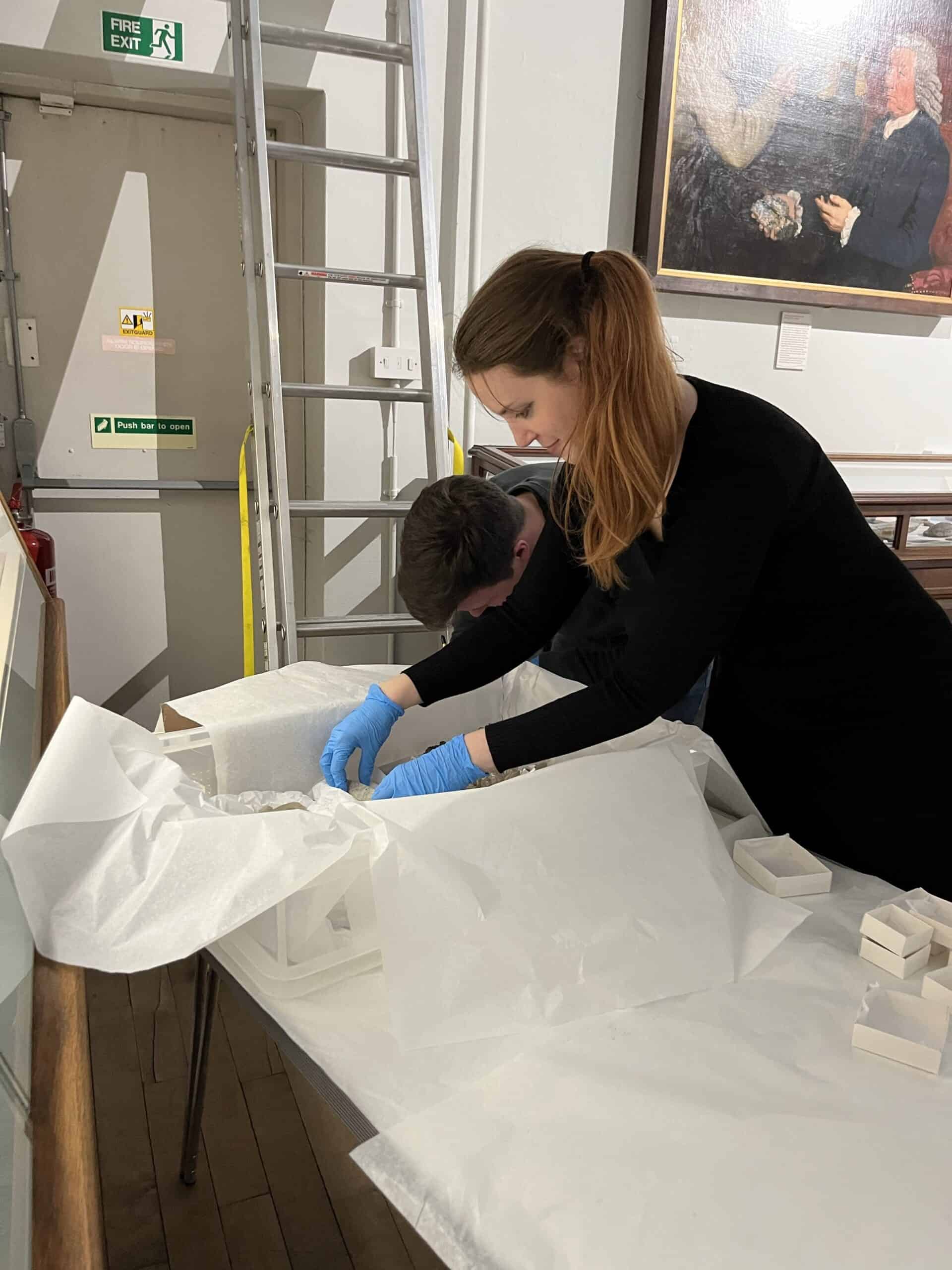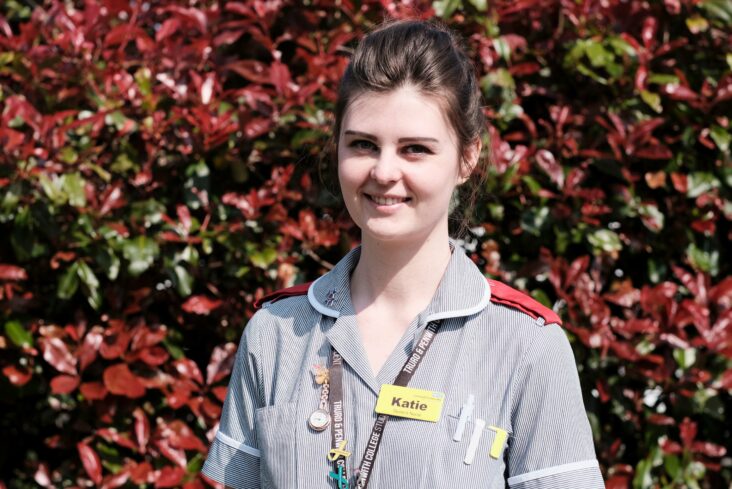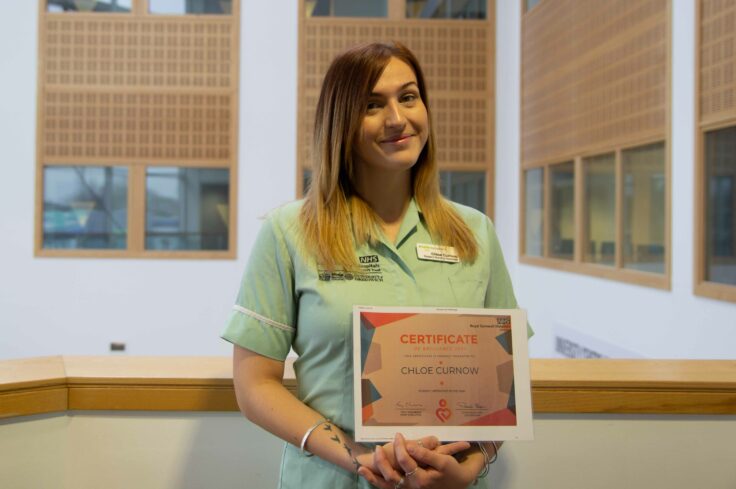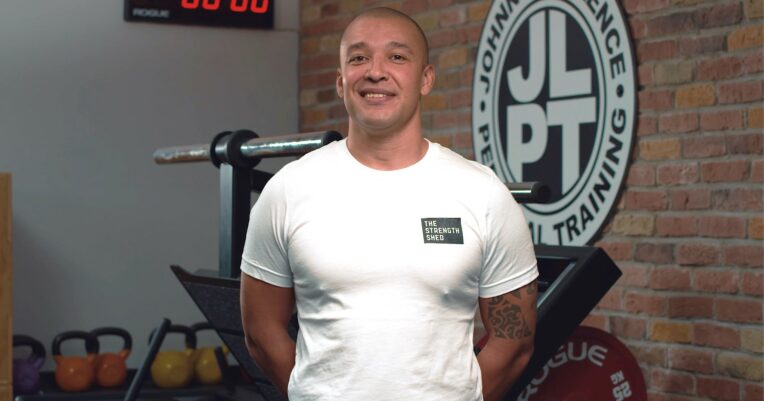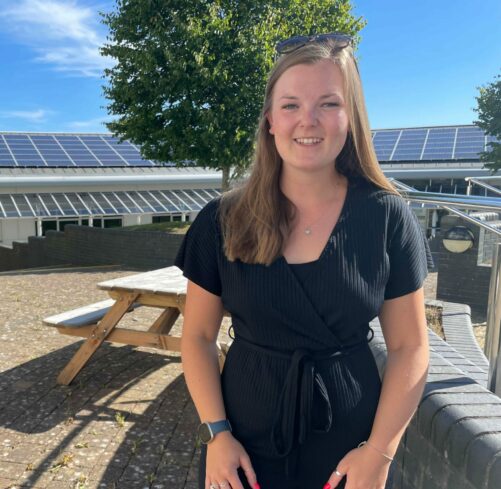New students starting in September: You can find more information about Induction days and submitting your GCSE results in our Start of Year Guide.
“I found that living and working before taking my degree was actually extremely useful in providing me with the experience and maturity required for HE study. It also meant that I really wanted it."
Share this story
Hometown: Truro
Course: BSc (Hons) Archaeology
Career: Collections and Engagement Manager at Royal Cornwall Museum (RCM)
My Story
Jeni had previously deferred University and worked her way into management in the Hospitality sector before realising that she wanted to work in a role she was passionate about. It was after some research into archaeology courses that she discovered that she could pursue her passion and study archaeology right on her doorstep at the University Centre Truro and Penwith. She therefore enrolled on the Archaeology Foundation degree before taking the BSc (Hons) top up degree and graduating in 2018. Jeni’s educational journey didn’t stop at graduation, she then pursued an MA in Archaeology and Heritage before gaining her current role at the Royal Cornwall Museum (RCM).
Jeni’s role now as a Collections and Engagement Manager involves caring for the collections of the collections of the Royal Institution of Cornwall that are held at RCM Truro. This includes archaeology, decorative and fine arts, social history, minerals, photography and archives.
Reflecting on her time at the University Centre and how this has helped her in her career, Jeni said: “I had a personal life I wanted to maintain locally, but I was deeply unhappy in my job at that time. When I looked to see where I could study archaeology, it was a strange coincidence that I found I could do both – a chance that I couldn’t pass up!”
“I realised that archaeology and museums were my passion after sifting through various courses – the fact that I binge-watch archaeology, history and museum shows, and make special trips for heritage visits should both have been a giveaway!”
“The staff were incredibly supportive to all students, but my experience was somewhat unusual: I became pregnant at the end of my first year. I am privileged enough to have had the support at home to continue my studies, and at the college the staff ensured that I was able to defer my first-year exams with no penalty, I was given extensions where needed and my welfare was a clear priority.”
“There were many great experiences during the course. Our trips out and away always managed to be educational and extremely entertaining. I really loved that the course was focussed on the unique and internationally important archaeology on our doorstep, but there was never a barrier to other cultures or study.”
“Our class was small – never more than 15 people. We all became very close, and this meant that we really encouraged one another. Equally, this enabled lecturers to dedicate time to supporting us. They knew us on a more personal level, which allowed them to tailor content delivery and progression to the needs of the group and the individual.”
“The course was as flexible as reasonably possible, without causing detriment to the quality of content or outcomes. I had opted to take the course part-time initially, but quickly realised that I wanted more. It was no problem for me to change to full-time study within the first month.”
“We not only studied the theory and practice of archaeology, but all of the possible career paths that it is relevant to. We were given opportunities to work on exhibitions, work with local museums on cataloguing collections and given behind-the-scenes tours of stores and conservation labs at the Mary Rose museum.”
“Though archaeology is not a primary part of my career, it is present in my mind every day, and the critical and analytical approaches are relevant to the methods and practices of museum professionals.I have found that the research and critical-thinking skills from studying the degree have been the most vital part of my role. Specific knowledge of the locality has also been very useful on many occasions.”
Alongside her degree, Jeni focussed on gaining industry experience and started a role in Visitor Services at RCM. She also volunteered on excavations, on post-excavation work and at RCM on collections work. Reflecting on her career and the achievements she has made, Jeni said: “There have been many highlights of my career journey so far. At times it will be watching something click into place on a visitor’s face when engaging with objects, at others it will be working with researchers on amazing projects that change our understanding of the past. And sometimes it is simply opening a box and finding some wonderful thing that no one had laid eyes or hands on for many years, and simply making its environment better.”
“If I had to choose one, I was most proud of it would be – co-curating an exhibition with The British Museum this year. I worked with specialists whose work I had read – before thinking of them only in abstract terms. I also negotiated the loan in of the Towednack Hoard, Bronze Age gold that was found in Cornwall 91 years ago and had never left The British Museum in that time. If I do nothing else, bringing that here for Cornish people to see in its home county will be an achievement I’ll always carry with me.
“I am so grateful to the lecturers for their support, time and expertise. They shared knowledge with no misgivings, encouraged us and gave criticism where it was due. We were treated as adults and equals, no superiority, just a pure desire to see us thrive and succeed.”
Jeni’s advice for anyone thinking of getting into a role in Heritage is Museum and heritage is: “You need to stand out! Take opportunities where you can, whether that’s online courses, trips, or volunteering alongside your degree. Digital, art and design, and marketing are some of the top skills we look for, but also customer service, creative writing, event planning and project management. Remember networking too – you could always be talking to someone that might employ you in the future. Make a good impression, be enthusiastic, ask questions and listen.”
Related stories
Katie – Access to Nursing & Human Sciences
Course: Access to Nursing & Human Sciences Hometown: Truro Progression: Registered Nurse Degree Apprenticeship with…
Chloe – FdSc Nursing Associate
Course Studied: FdSc Nursing Associate Hometown: Camborne Whats next: Returning to the University Centre for…
Johnny – BSc (Hons) Applied Sport and Health Science
Course: BSc (Hons) Applied Sport & Health Science Career: Personal Trainer After relocating to Cornwall…
Maddi – FdA Childhood Education
Courses Studied: FdA Childhood Education & BA (Hons) Human Behavioural Studies Career: Primary School Teacher, Gulval…
